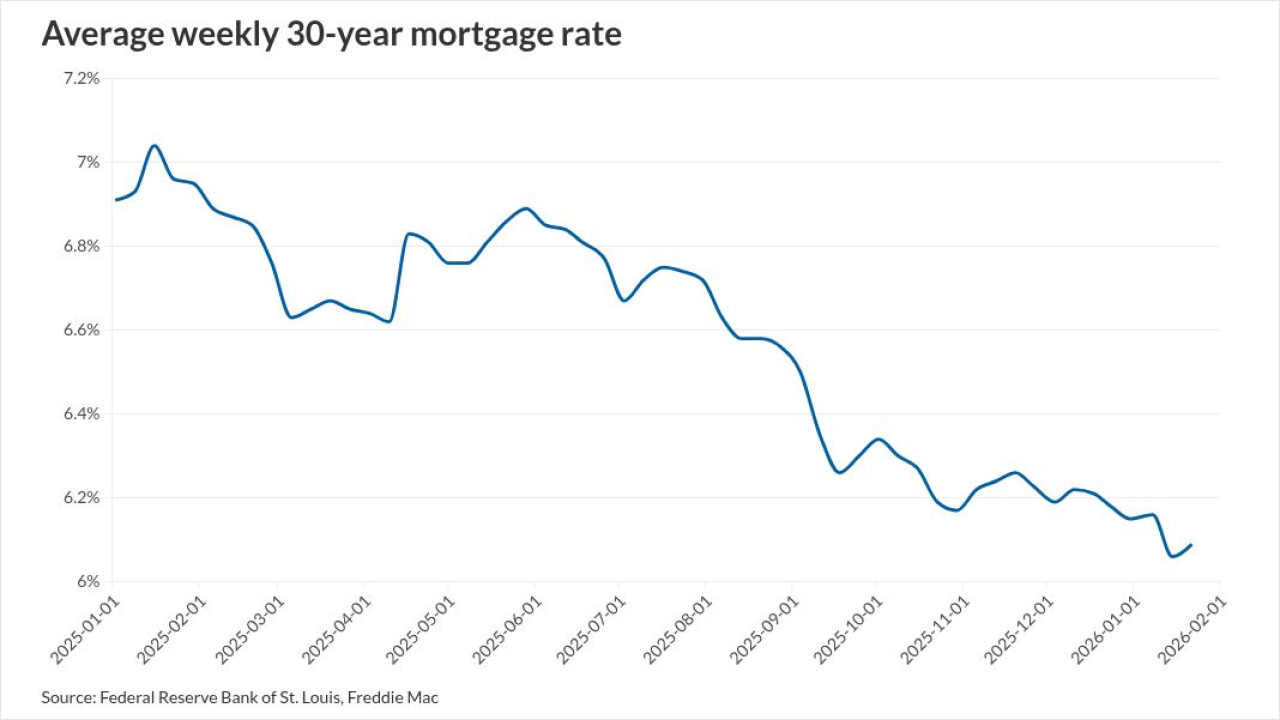After rising three weeks in a row including by
That net decrease resulted from 146,000 removals and 54,000 entering forbearance. Nearly 2.74 million borrowers sat in active plans as of Jan. 5. The forborne mortgages represent 5.2% of all active home loans, with a combined unpaid principal balance of $547 billion, down from 5.3% and $568 billion a week ago.

Forbearance activity declined for each loan type week-over-week. Fannie Mae and Freddie Mac mortgages fell by 32,000 to a total of 932,000. Government-backed dropped by 33,000, bringing its total to 1.131 million. Portfolio and private-label securitized loans — which aren’t covered by
While this marks a major reversal from recent trends and the largest weekly fall off since early November, the start of each month typically shows this kind of improvement. Comparatively, the 3% decrease in forbearance plans from the first week of January sits below the drops of 18% in October and 9% in July.
“The declining rate of improvement implies that those who were able to absorb the shock of the pandemic and get back on their feet, may have already done so,” Andy Walden, Black Knight economist and director of market research, said in a statement to NMN. “The rising share of extensions vs. removals suggests that those who remain in forbearance are in need of help and may require the full 12 months allotted to them under
Past-due borrowers
Black Knight’s estimates show mortgage servicers




